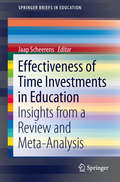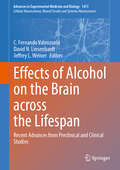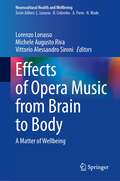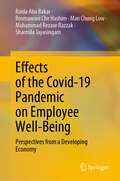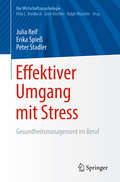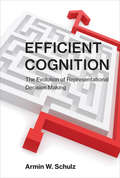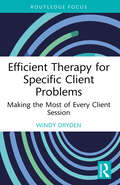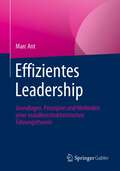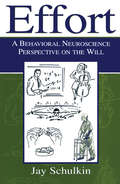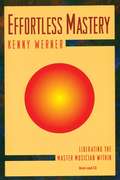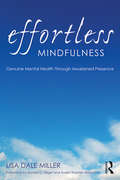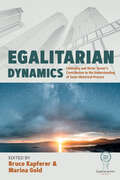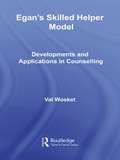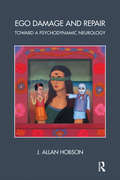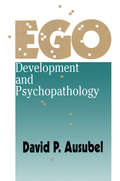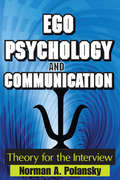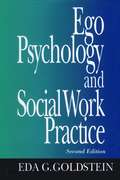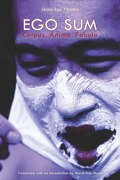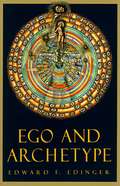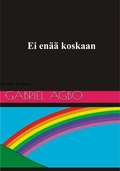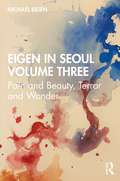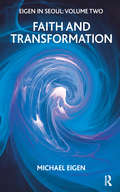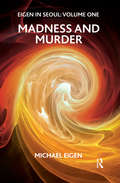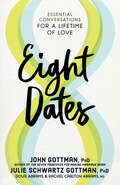- Table View
- List View
Effectiveness of Time Investments in Education: Insights from a review and meta-analysis
by Jaap ScheerensThis book analyzes the productivity and effectiveness of a variety of time investments in education. It explores the methods used in education to optimize the time that students are exposed to learning content. Such methods include expanding official school time, optimizing "time on task", providing homework assignments, and creating learning opportunities beyond lesson hours. The book presents a review of earlier reviews and meta-analyses, secondary analyses of international data sets, and new meta-analyses concerning the effects of instruction time, homework and extended learning, beyond official school time. It explores the concept of time as a condition to enhance student achievement and discusses methodological issues in separating "genuine" time effects from related facets of educational quality. The book shows that the dependence of time effects on the quality of content choice and delivery raises critical questions for both researchers and policy planners. It further shows that sophisticated research designs are required to properly assess time effects, and that policy makers should be concerned about the bluntness of time as an instrument to enhance educational productivity.
Effects of Alcohol on the Brain across the Lifespan: Recent Advances from Preclinical and Clinical Studies (Advances in Experimental Medicine and Biology #1473)
by C. Fernando Valenzuela David N. Linsenbardt Jeffrey L. WeinerThis book delves into the intricate relationship between alcohol and the brain across different stages of life, offering groundbreaking insights from preclinical and clinical studies. From prenatal development to the complexities of aging, it unravels how alcohol interacts with neural networks, neurotransmitters, and cellular processes that govern behavior. Starting with the prenatal period, the book will explore the effects of alcohol on the developing brain, shedding light on the potential cognitive and behavioral consequences that may persist into adulthood. It unravels the intricate mechanisms through which alcohol impacts neurodevelopment, including alterations in brain structure, neuronal connectivity, and synaptic plasticity. Moving into adolescence and early adulthood, the book will examine how alcohol affects crucial brain regions involved in decision-making, impulse control, and memory formation. It will explore the neurological changes associated with excessive alcohol consumption during this sensitive period, offering insights into the long-term risks of alcohol abuse and addiction. Throughout middle adulthood and into later life, the book will delve into the nuanced interplay between alcohol and age-related disorders, including neurodegenerative disorders, such as Alzheimer's disease and dementia. Researchers in neuroscience, psychology, and related fields will find this book invaluable for its comprehensive exploration of alcohol's effects on the brain. It is an essential read for scholars, practitioners, and anyone interested in understanding the profound implications of alcohol consumption across the lifespan.
Effects of Opera Music from Brain to Body: A Matter of Wellbeing (Neurocultural Health and Wellbeing)
by Lorenzo Lorusso Michele Augusto Riva Vittorio Alessandro SironiThis book explores the connection between melodrama and medicine from multiple perspectives. Neuroscientists study the relationship between opera and brain functioning in the light of new findings in the fields of neurophysiology, neuroimaging, cognitive science and neuro-musicology; clinicians investigate the therapeutic potential of music, especially in the field of treatment and rehabilitation of individuals with neurodegenerative diseases; medical historians analyse the representation of diseases and those who cure diseases within operas; occupational doctors report descriptions of diseases that affect workers in the opera world and particularly focus on psychiatric and psychological alterations. Opera, with its instrumental and vocal accompaniment, is considered the most complete form of theatrical performance. However, little is known about the mechanisms of brain activity under the influence of melodrama on singers, musicians, and listeners. The use of neuroimaging techniques has enabled a better understanding of the neuronal mechanisms and circuits involved during an opera performance. Over the past 20 years, melodrama has increasingly been used as a therapeutic approach in various neurological and neuropsychiatric pathologies, such as depression, cognitive impairment, and even coma. The book also discusses the ways in which melodrama affects professionals involved in music and interventions to reduce or alleviate occupational diseases, leading to improved health and higher life satisfaction. The ultimate goal is to improve therapeutic interventions in neurological diseases and professional disorders, relying on solid neuroscientific data. This book will be of great interest to neurologists, neurobiologists, psychiatrists, occupational doctors and therapists in music.
Effects of the Covid-19 Pandemic on Employee Well-Being: Perspectives from a Developing Economy
by Sharmila Jayasingam Raida Abu Bakar Rosmawani Che Hashim Man Chung Low Mohammad Rezaur RazzakThis book contributes toward the understanding of the human experience at work during the pandemic and its implications on employee well-being in the context of Malaysia, a developing economy with its own set of unique challenges. Very little research has been done about this issue to date, particularly in Malaysia. This book aims to bridge this gap by examining the Malaysian perspective of the concept of employee well-being in detail with the overarching goal of serving as a guide toward overcoming the challenges wrought on by the ever-changing post-pandemic environment. Different conditions and experiences are discussed to contextualize the unique ways in which individuals react to difficulties with an emphasis on how organizations can assist at a micro-level to allow employees to overcome such difficulties.
Effektiver Umgang mit Stress: Gesundheitsmanagement Im Beruf (Die Wirtschaftspsychologie)
by Julia Reif Erika Spieß Peter StadlerDieses Buch basiert auf Erkenntnissen aus Wissenschaft und Praxis, die aufzeigen was beruflicher Stress aus uns macht und wie wir besser mit Stress umgehen können. Die Autoren bringen klassische und aktuelle Erkenntnisse aus der psychologischen Stressforschung auf den Punkt und verdeutlichen Stress und das damit verbundene komplexe Ursachengefüge anhand eines praxisrelevanten Models. Als Leser lernen Sie, wie positiv sich gefährdungsfreies Arbeiten auf das Wohlbefinden und die Motivation der Mitarbeiter auswirkt und wie es Unternehmen und Führungskräften gelingen kann, eine humane Arbeitswelt zu gestalten. Erfahren Sie durch zahlreiche Fall- und Praxisbeispiele, Checklisten, Fragebögen, Ansätze zur Gestaltung sowie Tipps und Tricks, wie eine Arbeitsatmosphäre geschaffen werden kann, in der Menschen ohne gesundheitliche Schädigung und psychische Gefährdungen arbeiten können. Einige der inhaltlichen Highlights mit starkem Praxisbezug:Woher kommt Stress bzw. wie entsteht Stress?Welche Ressourcen stehen zur Verfügung, um den Stress abzumildern?Was kann ich gegen Stress tun? Wie sind negative Langzeitfolgen von Stress zu behandeln?Wie führe ich eine Gefährdungsbeurteilung durch?Zielgruppen sind alle, für die ein effektiver Umgang mit Stress von Bedeutung ist, d.h. Führungskräfte, Betriebsräte, Arbeitsschutzakteure, Mitarbeiter, betriebliche Experten und Studierende.
Efficient Cognition: The Evolution of Representational Decision Making
by Armin W. SchulzAn argument that representational decision making is more cognitively efficient, allowing an organism to adjust more easily to changes in the environment. Many organisms (including humans) make decisions by relying on mental representations. Not simply a reaction triggered by perception, representational decision making employs high-level, non-perceptual mental states with content to manage interactions with the environment. A person making a decision based on mental representations, for example, takes a step back from her perceptions at the time to assess the nature of the world she lives in. But why would organisms rely on representational decision making, and what evolutionary benefits does this reliance provide to the decision maker? In Efficient Cognition, Armin Schulz argues that representational decision making can be more cognitively efficient than non-representational decision making. Specifically, he shows that a key driver in the evolution of representational decision making is that mental representations can enable an organism to save cognitive resources and adjust more efficiently to changed environments. After laying out the foundations of his argument—clarifying the central questions, the characterization of representational decision making, and the relevance of an evidential form of evolutionary psychology—Schulz presents his account of the evolution of representational decision making and critically considers some of the existing accounts of the subject. He then applies his account to three open questions concerning the nature of representational decision making: the extendedness of decision making, and when we should expect cognition to extend into the environment; the specialization of decision making and the use of simple heuristics; and the psychological sources of altruistic behaviors.
Efficient Therapy for Specific Client Problems: Making the Most of Every Client Session (Routledge Focus on Mental Health)
by Windy DrydenMost clients seeking therapy want to be helped with specific emotional problems with which they are struggling, and yet many therapists are reluctant to offer problem-focused therapy.Efficient Therapy for Specific Client Problems presents the case for such an approach and details how it can be practised efficiently. The book outlines the 26 principles of efficient therapy for specific client problems with clinical examples demonstrating each of the main points. Topics covered include identifying when problem-focused help is appropriate, developing a problem list with the client and setting an agenda for each session, problem assessment, and helping a client find, develop, and implement a solution. The book is highly practical in emphasis with approachable guidelines for helping clients directly with their specific problems and appendices that feature a pre-therapy form, a pre-session form, a session rating form and an end of therapy questionnaire. Designed to be read by therapists, counsellors, counselling and clinical psychologists, and students of these disciplines, this accessible text will be valuable to readers across different levels of experience.
Effizientes Leadership: Grundlagen, Prinzipien und Methoden einer sozialkonstruktivistischen Führungstheorie
by Marc AntDas Buch beschreibt theoretisch fundiert sowie praxisorientiert das Thema Leadership und stellt neben den klassischen Grundlagen und Führungstheorien insbesondere die sozialkonstruktivistische Leadershiptheorie vor. Der Autor gibt unter anderem Antworten auf die Fragen: Was ist Leadership? Wie kann man dieses Phänomen definieren und verstehen? Welche Erkenntnisse können aus einer historischen Betrachtung des Leaderships gewonnen werden? Welche ökonomischen, soziologischen und psychologischen Prozesse tragen zur Entstehung eines zeitgemäßen Leaderships bei? Wie kann ein erfolgreiches, bzw. ein weniger erfolgreiches Leadership charakterisiert werden? Auf welche Art und Weise kann man Leadership erlernen?Nach einer inhaltlichen Einordnung des Themas werden die klassischen Führungstheorien kritisch betrachtet und die sozialkonstruktivistische Leadershiptheorie, -prinzipien und -methoden näher beleuchtet. Abschließend analysiert der Autor ausgewählte Spielfilme durch die Brille der Leadershiptheorien und leitet daraus anhand einer interaktiven Vorgehensweise Erkenntnisse für die persönliche und unternehmerische Führungspraxis ab.
Effort: A Behavioral Neuroscience Perspective on the Will
by Jay SchulkinIn Effort: A Behavioral Neuroscience Perspective on the Will, author Jay Schulkin presents a two-fold thesis: there is no absolute separation of the cognitive and non-cognitive brain, and there are diverse cognitive systems, many of which are embodied in motor systems that underlie self-regulation. Central to this thesis is that dopamine is the one neurotransmitter that underlies the diverse senses of effort, and is apparent in most everyday activity, whether solving a problem in our head or moving about. As scientific literature abounds with studies of decision-making and effort, this book emphasizes the importance of demythologizing our understanding of cognitive systems in order to link motivation, behavioral inhibition, self-regulation, and will. Effort will benefit researchers and students in neuroscience, behavioral neuroscience, cognitive psychology, clinical psychology, social psychology, as well as anyone with interest in this topic.
Effortless Mastery - Liberating the Master Musician Within
by Kenny WernerWerner explores ways of opening the master within each of us. The print book includes a cd of guided meditations not available in this format.
Effortless Mindfulness: Genuine Mental Health Through Awakened Presence
by Lisa Dale MillerEffortless Mindfulness promotes genuine mental health through the direct experience of awakened presence—an effortlessly embodied, fearless understanding of and interaction with the way things truly are. The book offers a uniquely modern Buddhist psychological understanding of mental health disorders through a scholarly, clinically relevant presentation of Theravada, Mahayana and Vajrayana Buddhist teachings and practices. Written specifically for Western psychotherapeutic professionals, the book brings together traditional Buddhist theory and contemporary psychoneurobiosocial research to describe the conditioned and unconditioned mind, and its in-depth exploration of Buddhist psychology includes complete instructions for psychotherapists in authentic, yet clinically appropriate Buddhist mindfulness/heartfulness practices and Buddhist-psychological inquiry skills. The book also features interviews with an esteemed collection of Buddhist teachers, scholars, meditation researchers and Buddhist-inspired clinicians.
Egalitarian Dynamics: Liminality, and Victor Turner’s Contribution to the Understanding of Socio-historical Process (Egalitarianism #2)
by Bruce Kapferer Marina GoldLiminality: the state of being ‘betwixt and between’ is one of anthropology’s most influential concepts. This volume reconsiders Victor Turner’s innovative extension of Arnold Van Gennep’s concept of liminality from within the Manchester tradition of Social Anthropology established by Max Gluckman. Turner’s work was grounded in ethnography and engaged with philosophical perspectives in varied socio-historical contexts, extending well-beyond the confines of the anthropology that initially inspired much of his work. Liminality has therefore become a concept with broad interdisciplinary reach. Engaging with topical issues across the globe – from neuroscience to open access publishing and refugee experiences in Europe – this volume launches Turner’s fundamental work into the future.
Egan's Skilled Helper Model: Developments and Implications in Counselling
by Val WosketThe skilled helper model of counselling is hugely influential in the helping professions. Egan's Skilled Helper Model brings a number of new and challenging perspectives to bear on Egan's work and makes a major contribution to the development of this problem-management and opportunity-development approach to helping. Val Wosket draws on over twenty years experience of counselling, training and supervising to provide a clear exposition of the model and situate it in contemporary counselling practice. Numerous case studies are provided throughout, along with contributions from experienced practitioners, illustrating how the model can be applied in a variety of clinical settings and with a range of counselling issues. Egan's Skilled Helper Model builds on and extends the aims of Egan's original work, covering key topics, including: Developing a client-responsive approach that places the therapeutic relationship at the heart of the model Applying the skilled helper model in research, training and supervision Translating the model into more accessible and adaptable language This book provides an invaluable resource for trainees, trainers, supervisors and experienced practitioners wishing to update their knowledge of the model. It will also be of great interest to anyone in the helping professions looking for a pragmatic integrative framework that is adaptable to a diverse range of client issues and contexts.
Ego Damage and Repair: Toward a Psychodynamic Neurology
by J. Allan HobsonAs a psychiatric trainee at Harvard in the early 1960s, Dr Allan Hobson was taught commitment to psychoanalytic theory that was already suspect and is now almost entirely obsolete. Via a series of clinical case reports, the author first apologizes for the arrogant ignorance that he adopted from his teachers and then replaces Freudian doctrine with a scientific alternative called Psychodynamic Neurology. The new approach is solidly grounded in sleep and dream science and restores hypnosis to its rightful place in the therapeutic armamentarium. A central precept of Ego Damage and Repair is that the self and its subjective experience (including symptoms) are natural accompaniments of spontaneous and prenatal brain activation that persists throughout life as REM sleep dreaming. Far from being the nonsense theory that psychoanalytic opponents mock, Psychodynamic Neurology views the unconscious as a hyper-meaningful set of predictions about the world that constitutes a virtual reality model which is continuously updated by personal experience. To showcase the changes in psychotherapeutic practice that are recommended, the self treatment of Dr Glen Just is described in detail.
Ego Development and Psychopathology
by David AusubelEgo Development and Psychopathology presents an original theoretical underpinning for classification and interpretation of the major mental disorders, one based largely on the author's clinical experience. Ausubel's central thesis is that the most significant and crucial factors predisposing persons to mental disorders are critical developmental defects that arise at vital transitional phases of ego development. He sees both normal and pathological personality functioning as most cogently explained in terms of an individual's ego structure at a given point in the life cycle.Ausubel relates his developmental theory to the phenomenology and related clinical problems of psychiatric diagnosis. He classifies mental disorders in terms of their developmental history. Such factors, in his opinion, offer the most precise delineation of etiological, functional, and phenomenological similarities and differences among the various psychiatric syndromes. He provides an overview of ego development, as well as major variants of the norm. He also discusses development of conscience and moral values, as well as psychopathological considerations that follow from deficiencies, defects, failure, and distortions in ego development. He examines at length classification of mental disorders, such as anxiety states, psychotic depression and mania, schizophrenia, autism, antisocial and narcissistic personality disorders, and defense mechanisms.Ausubel is careful to point out that ego development is not the only significant determinant of normal and aberrant personality. Genetic predispositions, situational stress, and sociocultural factors must always be taken into consideration since mental disorder is always a product of multiple causality. However, he believes ego development is by far the most critical factor, and hence offers the most for classification of mental illness. This intriguing study will be of interest to professionals as well as educated and concerned practitioners in the fields of psychology, psychiatry, psychoanalysis, child psychotherapy, and social work.
Ego Psychology and Communication: Theory for the Interview
by Norman PolanskyWriting in a lively straightforward tone and offering numerous examples, Polansky demonstrates that verbal communication plays a major role in mental health and is essential to preventing and curing emotional disorders. He shows why the inability to achieve effective speech reflects neurosis, interferes with self-healing potentials in the personality, and hampers patients in their efforts to make use of any of the talking therapies. He also makes clear how verbal expression leads to the growth of intimacy between people on a mature organized level and guards the individual against the existential anxiety of being completely alone in a potentially meaningless universe.Synthesizing basic theory that underlies skilled interviewing, the book serves as an introduction to ego psychology. It offers an appraisal of the role of verbal communication, especially in casework, individual therapy, and counseling, as well as in most group treatments situations. The author covers such topics as the resiliency of the ego, the logic of defenses, coping mechanisms, and the theory of object relations. He provides numerous illustrations of specific security and distance maneuvers found in everyday practice. He also describes techniques for dealing with these maneuvers by patients in face-to-face situations.This book is as vital to the field as when it first appeared in 1971. Polansky summarizes major concepts of modern ego psychology and relates them to what is known today about the process of verbal communication. It will be especially useful for those who seek to understand and treat the human personality through speech. Ego Psychology and Communication is designed for courses in social work, clinical psychology, educational counseling, guidance, and psychiatric nursing. Practitioners in social work, psychology, and psychiatry will find it to be a valuable addition to their personal reference libraries.
Ego Psychology and Social Work Practice (Second Edition)
by Eda G. GoldsteinWhile ego psychological theory still holds a pre-eminent position in clinical social work practice, the field has changed in many ways. This revised edition addresses these major changes, bringing the reader up to date.
Ego States: Theory and Therapy
by John G. Watkins Helen H. WatkinsDescribes techniques of brief hypnoanalysis that the authors have developed based largely on the psychoanalytic ego psychology of Paul Federn.
Ego Sum: Corpus, Anima, Fabula
by Jean-Luc NancyFirst published in 1979 but never available in English until now, Ego Sum challenges, through a careful and unprecedented reading of Descartes’s writings, the picture of Descartes as the father of modern philosophy: the thinker who founded the edifice of knowledge on the absolute self-certainty of a Subject fully transparent to itself. While other theoretical discourses, such as psychoanalysis, have also attempted to subvert this Subject, Nancy shows how they always inadvertently reconstituted the Subject they were trying to leave behind.Nancy’s wager is that, at the moment of modern subjectivity’s founding, a foundation that always already included all the possibilities of its own exhaustion, another thought of “the subject” is possible. By paying attention to the mode of presentation of Descartes’s subject, to the masks, portraits, feints, and fables thatpopulate his writings, Jean-Luc Nancy shows how Descartes’s ego is not the Subject of metaphysics but a mouth that spaces itself out and distinguishes itself.
Ego and Archetype
by Edward F. EdingerThis book is about the individual's journey to psychological wholeness, known in analytical psychology as the process of individuation. Edward Edinger traces the stages in this process and relates them to the search for meaning through encounters with symbolism in religion, myth, dreams, and art. For contemporary men and women, Edinger believes, the encounter with the self is equivalent to the discovery of God. The result of the dialogue between the ego and the archetypal image of God is an experience that dramatically changes the individual's worldview and makes possible a new and more meaningful way of life.
Ei enää koskaan!
by Gabriel Agbo"Minä hyvitän teille ne vuodet, jolloin sadon söivät sirkat ja niiden toukat, vaeltajasirkat ja kalvajasirkat... Minun kansaani ei enää koskaan pilkata. Te tulette tietämään, että minä olen Israelin keskellä ja että vain minä, Herra, olen teidän Jumalanne, muuta Jumalaa ei ole. Koskaan enää ei minun kansaani pilkata. Joel 2: 25-27 On aika pysäyttää ne asiat, jotka haluavat pysäyttää sinut. On Jumalan tahto pysäyttää jokainen, joka haluaa pilata Hänen suunnitelmansa elämällesi. Ja sinähän jo tiedät, että Hän suunnittelee elämällesi parhainta iloa, rauhaa, vaurautta, siunausta, hyvää terveyttä ja että saat säilyttää kaiken omaisuutesi. Vaikka joutuisit Hänen tuomitsemakseen, voit pysäyttää sen tänään ja alkaa uida hänen armossaan. Luemme myös muiden kokemuksista ja nykyisen Israelin sloganista "Ei enää koskaan". Miksi he ottivat tämän sloganin käyttöön, ja miten he ovat valvoneet sen käyttöä? Totta, Israelista on nykyaikana tullut yksi maailman vahvimpia valtioita (Sillä on käytössään paras tiedustelupalvelu - Mossad, ja maailman kolmanneksi vahvin armeija), ei vain siksi, että Jumala on heidän kanssaan, vaan siksi että he ovat vannoneet suojelevansa juutalaisia niiltä ihmisarvoa loukkaavilta teoilta, kivuilta, suruilta ja kuolemilta, joita he kokivat viime vuosisadalla. Nämä kokemukset olivat epäonnisia ja ne olisivat olleet estettävissä. Nykyään Israel ei ole pelkästään vahva puolustuksessa, vaan myös maantaloudessa, ICT:ssä, tieteessä ja lääketieteessä. Kyllä, voimme nykyäänkin sanoa näin, ei enää koskaan! Tämän kirjan lukeminen tulee varmasti olemaan kiinnostavaa.
Eigen in Seoul Volume Three: Pain and Beauty, Terror and Wonder
by Michael EigenBetween 2007 and 2011, Michael Eigen gave three seminars in Seoul, each running over three days and covering different aspects of psychoanalysis, spirituality and the human psyche. This book is based on a transcription of the third seminar, which took place in 2011, on the subject of Pain and Beauty. The first two were published as Madness and Murder (2010) and Faith and Transformation (2011). A conjunction of the pain that shatters and beauty that heals is made by many authors, including Bion, Winnicott, Milner, Meltzer, Perls, Ehrenzweig, Matte-Blanco, Schneur Zalman, Chuang-Tzu, Buber, Castaneda, and Levinas. These and others are used as windows of the psyche, adding to possibilities of experience and opening dimensions that bring us life. Eigen explores challenges of the human psyche, what we are up against and the resources difficulties can stimulate. This work spans many dimensions of human experience with interplay, fusions and oppositions of pain, beauty, terror, and wonder, and makes use of poetic and philosophical expressions of experience. It will be vital reading for psychoanalysts, psychotherapists, and all those with an interest in psychoanalytic and spiritual psychology.
Eigen in Seoul: Faith and Transformation
by Michael EigenThis book contains an eighteen hour seminar, given over a three day period, presented by Michael Eigen in Seoul, Korea, in 2009. The seminar traces the role of faith in transformational processes in psychotherapy.
Eigen in Seoul: Madness and Murder
by Michael EigenThis book contains an eighteen hour seminar - given over a three day period - presented by Michael Eigen in Seoul, Korea, in 2007. The seminar traces transformations of madness and faith in psychoanalysis - particularly Freud, Klein, Bion and Winnicott - emphasizing basic rhythms of experience steeped in clinical details, social issues and personal concerns, and takes up problems of madness and faith besetting the world today. It is filled with clinical portrayals and discussions of personal and social issues. Eigen describes ways we live through challenging experiences in therapy relevant for how life is lived. Discussions go back and forth between clinical details and cultural dilemmas, touching the taste of life, how one feels to oneself. This work is at once personal, learned, and down-to-earth. One gets the feeling that a lifetime of dedicated work is being condensed and transmitted, mind to mind, person to person, soul to soul. The reader will feel he or she is a member of an ongoing seminar alive today, this moment, carrying the work further.
Eight Dates: Essential Conversations for a Lifetime of Love
by John Gottman Julie Schwartz Gottman Rachel Carlton Abrams Doug AbramsStrengthen and deepen your love with a fun, ingenious program of eight life-changing conversations—on essential topics such as money, sex, and trust—from two of the world’s leading marriage researchers and clinicians. Navigating the challenges of long-term commitment takes effort—and it just got simpler, with this empowering, step-by-step guide to communicating about the things that matter most to you and your partner. Drawing on forty years of research from their world-famous Love Lab, Dr. John Gottman and Dr. Julie Schwartz Gottman invite couples on eight fun, easy, and profoundly rewarding dates, each one focused on a make-or-break issue: trust, conflict, sex, money, family, adventure, spirituality, and dreams. Interactive activities and prompts provide motivation to stay open, stay curious, and, most of all, stay talking to each other. And the range—from the four skills you need for intimate conversation (including Put Into Words What You Are Feeling) to tips on being honest about your needs, while also validating your partner’s own emotions—will resonate, whether you’re newly together or a longtime couple looking to fortify your bond. You will discover (or rediscover) your partner like never before—and be able to realize your hopes and dreams for the love you desire and deserve.
